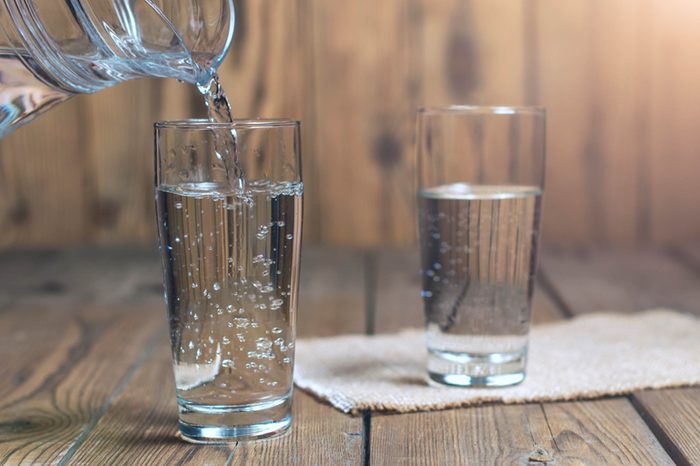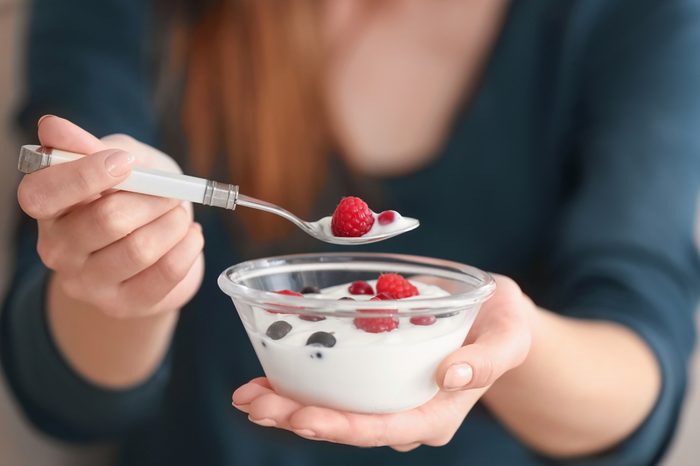
Just part of the battle
Regular exercise, effective coping skills, and a strong social support system, plus limiting or avoiding alcohol, cigarettes, and medications that compound an emotional problem, are important considerations to your mental health. Depression also can be a symptom of other problems, so always consult a physician if emotional problems persist or interfere with your quality of life and health. But in the meantime, you can take matters into your own hands by focusing on foods that support your mental health.
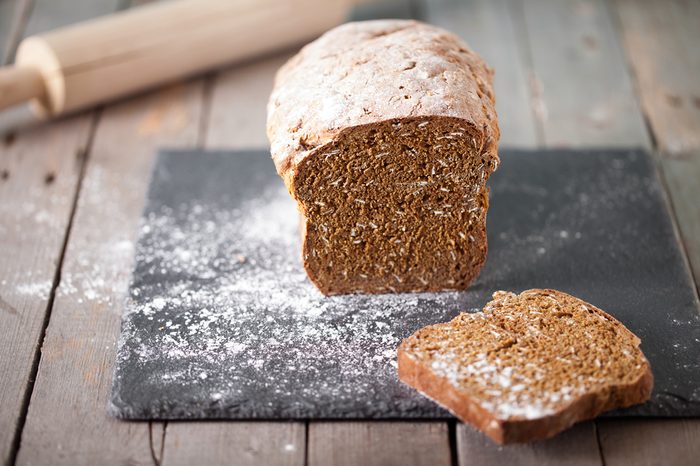
Whole grains
A 2015 study published in the American Journal of Clinical Nutrition found an association between lowered rates of depression among almost 70,000 postmenopausal women who ate more whole grains. Whole grains is the operative word for foods that may help fight depression; refined grains were correlated with higher rates of depression. Refined grains include items like pastries and white starches, so refrain from eating too much of them. If you’re curious, check out the difference between whole wheat and whole grain.
Water
Drinking more water may help reduce your depression. An analysis of a large cross-sectional study published in 2018 noted that lower plain water intake on a daily basis was associated with elevated depression and anxiety levels. Drink up to avoid making your depression any worse.
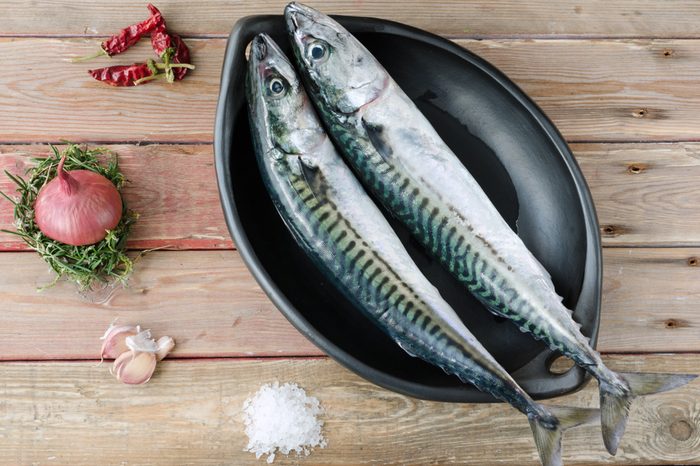
Mackerel
Omega-3 fatty acids could ease depression by boosting brain function and reducing inflammation. In fact, the Mayo Clinic suggests ramping up your omega-3 consumption to combat depression, listing it as one of many ways to help low mood. Oily fish are rich in omega-3s, and mackerel has one of the highest concentrations. Other omega-3-rich foods that fight depression include herring, sardines, and anchovies. If you love anchovies, try this anchovy and sesame-topped tuna recipe.
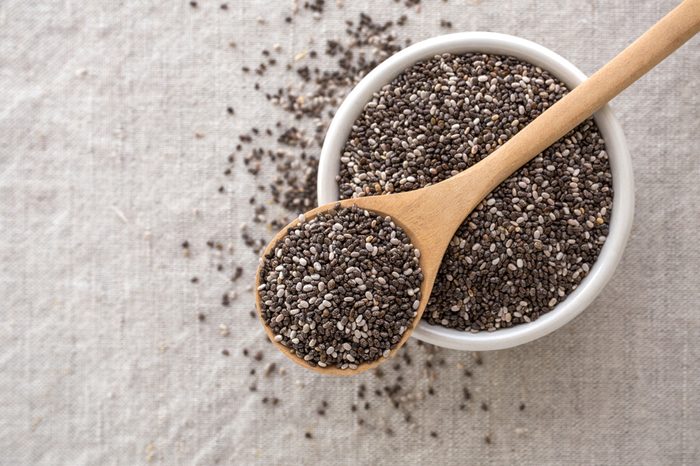
Chia seeds
Vegetarians can still load up on omega-3s. With more than 4,900 milligrams of omega-3s per ounce, chia seeds give you one of the best bangs for your buck in terms of fatty acids. Try eating more walnuts and flaxseeds too.
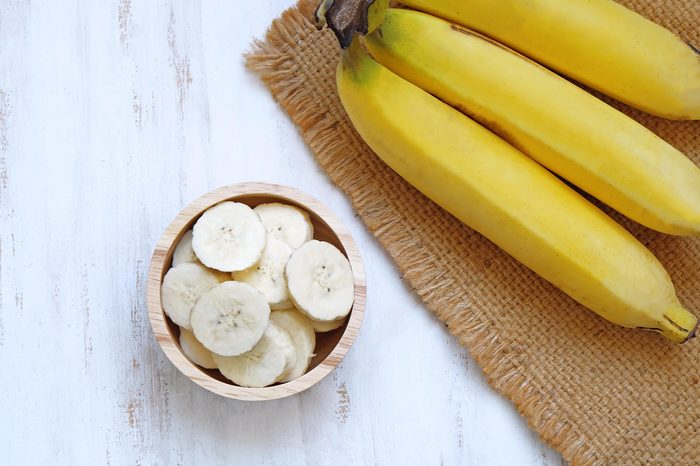
Bananas
A single banana contains 22 percent of your daily vitamin B6, a nutrient that helps your body make the neurotransmitter serotonin, and low serotonin levels are linked to depression. Eating more B6-rich foods could ward off depression, as stated in a 2016 issue of the European Journal of Clinical Nutrition. Folate and B-12 may also help.
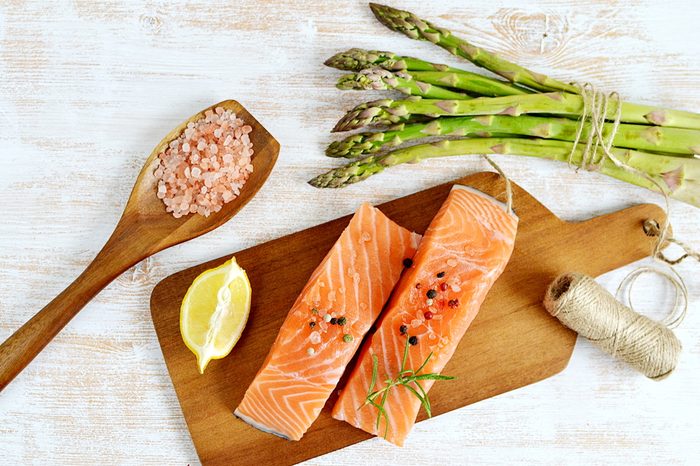
Salmon
Bananas aren’t your only choice for vitamin B6. Salmon also contains this beneficial vitamin, not to mention a healthy dose of omega-3 fatty acids. Here are some delicious fish recipes to try which include salmon. For more foods that fight depression, load up on chicken, legumes, avocados, and dark green leafy vegetables.
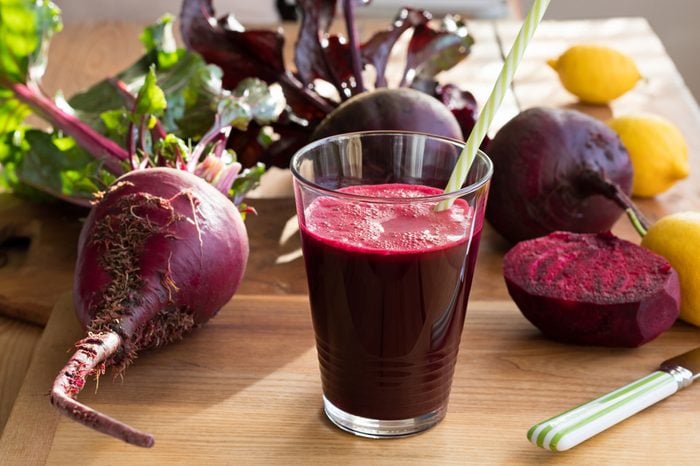
Beets
According to Berkeley Wellness, a collaboration between the School of Public Health at UC Berkeley and a national team of writers and editors, beets “are a good source of fiber, manganese, and folate, a B vitamin.” Plus, early evidence suggests folate deficiency could be linked to depression, and might make antidepressants less effective. It can’t hurt to load up on healthy foods that happen to have B vitamins. Include at least two folate-rich foods in your diet, such as spinach, broccoli, orange juice, or chard.
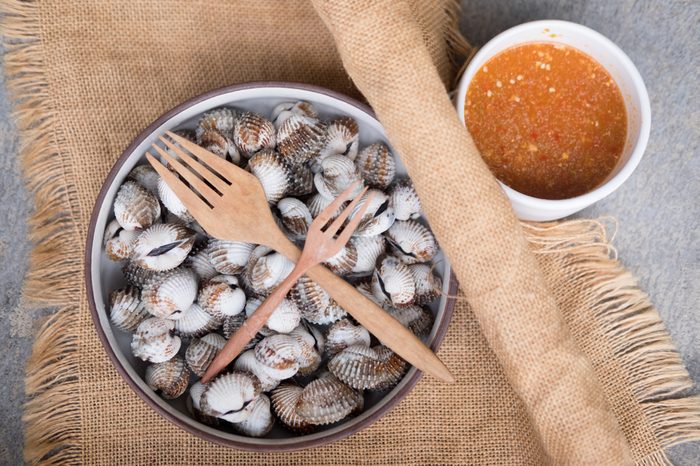
Clams
Clams may help fight depression. In fact, a 2018 issue of the World Journal of Psychiatry lists them as an “antidepressant animal food,” along with oysters and mussels. Clam bake anyone?
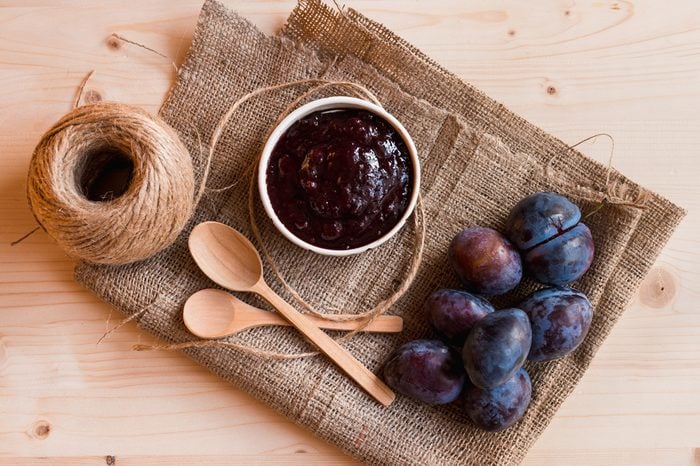
Plums
Research links a high intake of flavonoids—a type of antioxidant found in fruits and vegetables—with a lower risk of depression among older women. Flavonoid-rich foods that fight depression include plums, apples, yellow onions, and tea.
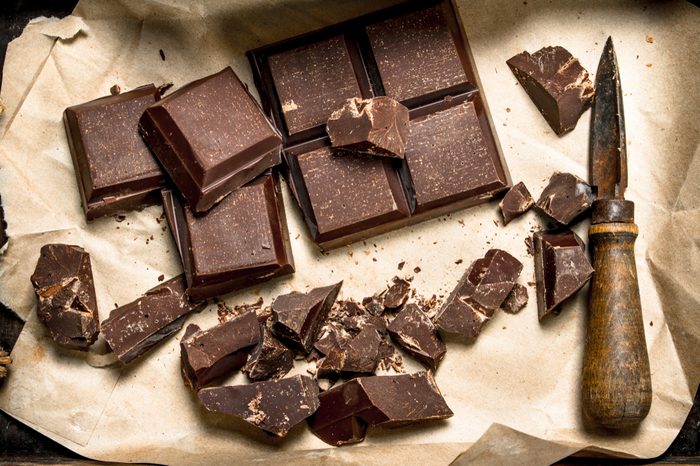
Dark chocolate
That treat of dark chocolate does more than make you smile for a moment. Dark chocolate is also rich in flavonoids, so it could help boost your mood. Make sure you’re reaching for dark chocolate with a high cacao content, not milk chocolate.
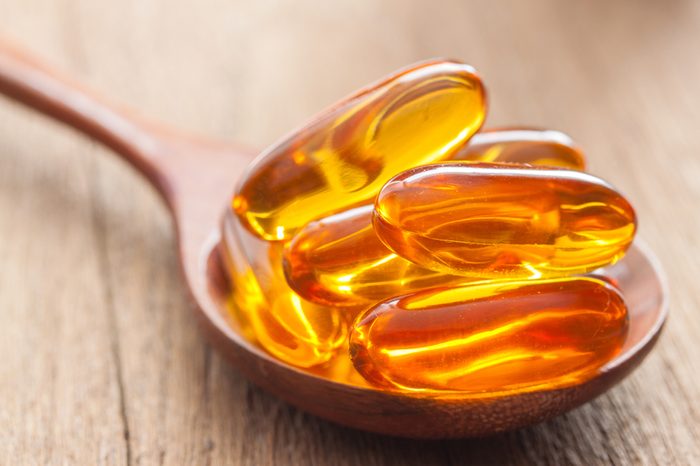
Multivitamin
No matter how hard you try, you might not be able to hit all your dietary needs with food alone. Take a moderate-dose multivitamin and mineral supplement to fill in any nutritional gaps. Check out these vitamins for depression that can boost your mood.

Make changes gradually
Select two or three small changes and practice them until you’re comfortable. This will assure long-term success in sticking with your plan. Plus, here are 16 more science-backed ways to help overcome depression.

